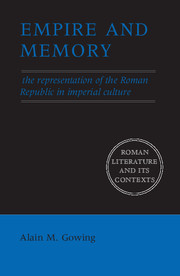2 - Res publica Tiberiana
Published online by Cambridge University Press: 02 December 2009
Summary
On August 19, ad 14, at about three in the afternoon, Rome's first emperor quietly passed away at his family home in Nola, in the same room as his father had died. Preparations had been made for the event, above all to ensure that Augustus' death would not give rise to a constitutional crisis. His adopted son Tiberius would be his heir, both to a substantial portion of the estate and to the name “Augustus.”
Augustus' corpse was still warm when Tiberius made it clear that controlling memory would be as high on his agenda as it had been on his stepfather's. When the Senate requested that some of their members be allowed to convey the body of the dead emperor to his funeral pyre, Tiberius balked and pointedly instructed that this would not be necessary. Remembering the disturbances accompanying the funeral of Julius Caesar over half a century earlier, he issued an edict forbidding the cremation of Augustus in the Forum rather than in the Campus Martius. Tacitus quotes the edict: “ne, ut quondam nimiis studiis funus divi Iulii turbassent, ita Augustum in foro potius quam in campo Martis, sede destinata, cremari vellent”, “[he warned them,] ‘Do not repeat the disturbances – due to over-enthusiasm – at the funeral of Julius Caesar by pressing for Augustus to be cremated in the Forum instead of the Campus Martius, his appointed place of rest’” (Tac. Ann. 1.8.5; cf. Dio 57.2.2).
- Type
- Chapter
- Information
- Empire and MemoryThe Representation of the Roman Republic in Imperial Culture, pp. 28 - 66Publisher: Cambridge University PressPrint publication year: 2005



